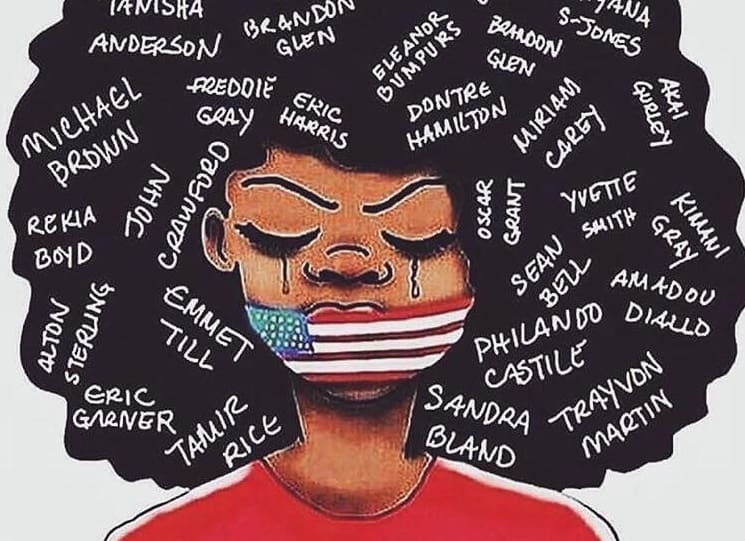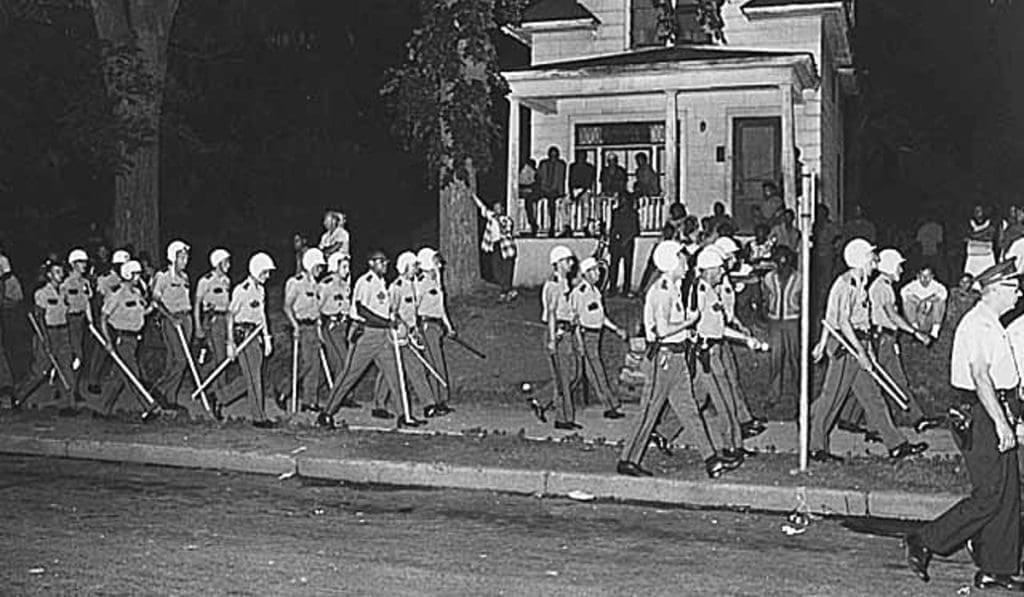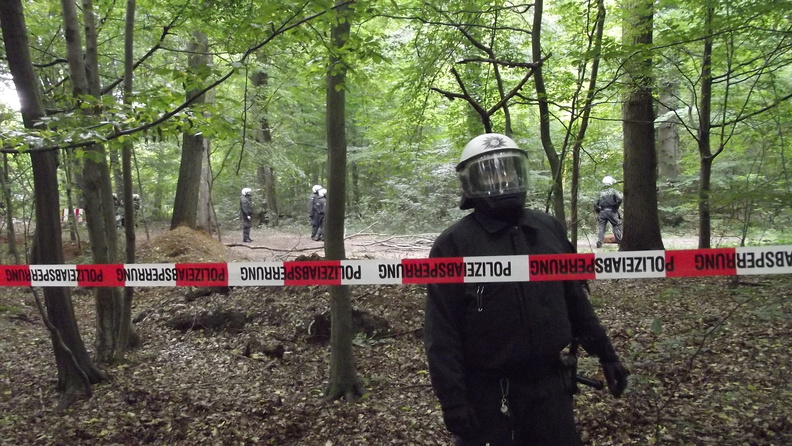Transcribed from the 7 March 2015 episode of This is Hell! Radio and printed with permission. Edited for space and readability. Listen to the whole interview:
“We all talk about freedom, but most people can accommodate totalitarian societies. The real threat is the one that Orwell and Huxley warned about. It’s a totalitarian society that seduces you, that blinds you, that subtly frightens you with external enemies, and tells you that giving up freedom is necessary to preserve your freedom.”
Chuck Mertz: There’s a military intelligence complex that is threatening our democracy, and it will scare the hell out of you—at least it did me while I was researching for this interview. With us right now is Bob Scheer. He is the editor of Truthdig, and is the author of They Know Everything About You: How Data-Collecting Corporations and Snooping Government Agencies are Destroying Democracy. Good morning, Robert.
Robert Scheer: Hi!
CM: So I got the Chicago Tribune on my doorstep this morning, and the headline was, “CIA sweeping change to focus on digital dust: massive overhaul planned to replace old divisions and emphasize cyber-espionage.”
Whenever I see these stories, they always conflate CIA espionage and Korean hackers and my ATM card and—there’s not really much about mass surveillance in there. Is cyber-security and my bank card really what the CIA is concerned about?
RS: No, it isn’t.
The CIA is not supposed to be spying on Americans or interfering with our domestic political life. We’ve got the Selma anniversary going on right now—Martin Luther King was almost destroyed by the FBI and J. Edgar Hoover, with old-fashioned wiretapping and shadowing. Hoover was out to finish him, drive him to suicide. It was really nasty. But at least the FBI had the excuse of being involved with domestic American life.
The CIA is not supposed to be. But the CIA now has a private venture capital company called In-Q-Tel. They have spawned some 250 outfits in Silicon Valley. One of them is a group called Palantir, which controls not only the data mining for all of the major intelligence agencies on the federal level—the CIA and everyone else—but the LAPD, the New Orleans police department…for all I know, the Chicago police department.
I don’t know why there isn’t more attention to it. But when I was writing about it, yeah, I did lose sleep over it. Because it’s a power no dictator could ever imagine having. They know exactly how far you read in a book, who you had dinner with, what letter you wrote to your friend. And it’s all in violation of the Fourth Amendment and other protections in the constitution.
That we’re not having a big national debate about it is bizarre, and the main excuse is that we’ve got an enemy. You know, ISIS or something, or Al-Qaeda. But the people who gave us the Fourth Amendment and the First Amendment, the founders of this country—they had enemies. They had just fought a revolution. They had very powerful foreign enemies. In fact, one of them, England, came back and burned down the capital in the war of 1812. And yet they gave us these protections because it would make us stronger, and we’ve just ignored that whole lesson. I think we’re in a very frightening period.
CM: Let’s talk about the politics around it just for a second. I was thinking about libertarianism and how it seems like the only politicians bringing up matters of privacy and secrecy are libertarians like Rand Paul. And that really turns a lot of people off who believe in civil liberties but are on the Left.
How concerned should people on the left be about libertarians bringing this issue to the fore?
RS: People on the left should be concerned about why more people on the left aren’t bringing these issues to the fore. Diane Feinstein is somebody “on the left.” I voted for her; California senator, head of the Intelligence Committee. She knew all this stuff was going on. Why didn’t she tell us? Why didn’t her committee investigate it? Why did it remain for a 29-year-old kid, Edward Snowden, to do it?
I have no problem with libertarians if they’re principled, if they’re consistent. If they believe in crony capitalism, if they believe in bailing out big corporations or polluters like the Koch brothers, that’s a different story. But if somebody has a principled position against big government intrusion, I think that’s very healthy. And frankly, in writing this book I found more support and more insight from libertarians working in Silicon Valley than I did from so-called liberals.
After all, I voted for Obama. But my goodness, he has crushed whistleblowers. He’s crushed the people who tell us the truth. He’s used the Espionage Act as much as all other presidents before him, combined. So I don’t think this is a left-right issue. I think this is a question of whether you really believe in individual freedom. And anyone can claim they’re on the left or the right, but if you don’t believe in individual freedom, you’re not on the left as far as I’m concerned. Is Diane Feinstein a progressive? No. She’s not.
CM: I keep hearing politicians repeating that if we have any problems with the government, remember that we can change them at the ballot box. So I keep asking this question: can we vote the military intelligence complex out of office?
RS: It’s even worse than that. We have an alliance between the government and the private sector in Silicon Valley, and that’s why I brought up In-Q-Tel and the CIA funding these groups. Remember, Edward Snowden was working as a contractor for Booz Allen, a private corporation that’s owned by the Carlyle Group. There’s no accountability with these private groups.
The CIA and the NSA do all this outsourcing, and so do local police departments. We can no longer even go to our local city council or to our congress and say, “Hey, who’s watching the store? Who’s keeping these people accountable?” That’s really the issue here. What right did the NSA have to let Booz Allen come and get all this data?
And you’ve got to ask: didn’t over a million people who had the same security clearance as Edward Snowden also know that this kind of stuff was going on? Where were they? The question is not to ask why Edward Snowden did it; we’ve got to ask, why didn’t thousands of other people tell us what’s going on? Do they believe in democracy? Do they respect the individual? That’s the part I don’t get.
We’ve got this powerful tradition of the Fourth Amendment, based on English Common Law: the king can’t come into the hut of the poorest peasant. That was the principle. And yet now, we let the NSA come into our cellphones everywhere, our most intimate communication everywhere. I think if there are traitors here, the ones who know and don’t speak out are traitors.
CM: This brings us back to politics again just for a second. When it comes to secrecy, I seriously doubt that in 2016 we’re going to hear any discussion of the issue of secrecy or surveillance, because the “two sides” basically agree on it. But does that reflect the actual public mood in the United States? Do you think the majority of Americans don’t really care about the secrecy the government has or the surveillance that the government is doing?
RS: No one cares about what the government does until they imagine themselves on the receiving end. That goes for how the police behave or anybody else. I’ve traveled pretty extensively in this world; I’ve been in totalitarian societies working as a journalist. The depressing news is, even in totalitarian societies you find a lot of people, maybe even a majority, thinking, “Hey, this is great! They’re only getting the bad guys.” They gladly self-censor themselves. They go along with the system, and it’s hunky-dory.
Don’t forget, Hitler won an election in Germany. I’m part German, and I go back to Germany a lot, and I ask my relatives there, “What were you guys thinking? What was it all about?” Most of them who were alive then are dead now, but I’ve heard things like, “Well, you know, he made the trains run on time, and we had a bad economy and he straightened it all out.” That kind of crap.
So we all talk about freedom, but most people can accommodate totalitarian societies. That’s what those books—Huxley and Orwell; Brave New World and 1984—were all about. They’re about accommodating tyranny. So I go and write a restaurant review on Yelp!, and coordinate that with my Facebook page, and coordinate that with my thumbprint in Apple, and you can have everything! Why? Because I think the government is benign; they’ll just go after the bad guys.
Was Martin Luther King a “bad guy” when the FBI went after him? Does the Chicago police force only go after the “bad guys?” No, that’s not the assumption of our society. The assumption of our society is we’re supposed to be suspicious of the governors. That’s the whole idea of limited government, of the American constitution. We have forgotten that.
And the other thing that I find amazing is that everyone says, “Well, that was before 9/11.” As if 9/11 was a bigger threat than what the founders faced. For god’s sake. We’re the biggest, most powerful military force in the history of the world. The people who gave us our constitutional protections had a citizen army of no account compared to the French or the Spanish or the English. And yet they said, “No, we have to preserve freedom.”
I go to a lot of ballgames. We sing the Star-Spangled Banner and everything. Everybody acts like they’re a big patriot. But they lose the main lesson of American patriotism, which is to be suspicious of power. The citizens are not supposed to be the ones that are held with intense suspicion by the government. It’s the government that’s supposed to be viewed with suspicion. They have the power, and power corrupts. We’ve turned the whole thing on its head.
CM: One of the victories that civil libertarians could say they had during the George W. Bush Administration was the fact that they brought so much attention to National Security Advisor Admiral John Poindexter’s pet program, Total Information Awareness, which was terminated by congress in 2003.
But you add, “when Poindexter’s program was nixed by congress, it was a natural fit to turn to a private, clearly for-profit Silicon Valley startup called Palantir, in part with CIA funding. Palantir is the premier company for unraveling and interpreting dense tangles of information data sets for intelligence and law enforcement agencies.”
So essentially what happened was: the people said, “we don’t want Total Information Awareness;” our elected representatives said, “we don’t want Total Information Awareness;” and we got Total Information Awareness. How easy is it nowadays to circumvent the will of the people in order to apply new surveillance systems?
RS: The scary thing about the new surveillance system is it can easily intimidate even powerful people, in the government or anywhere else. Just think of the detailed information that a group like Palantir has on everyone.
Mind you, this is a privately held company. They’re not even publicly owned. And you can’t get anywhere near their building. They have people stopped by private security and everything. What is this company? They were started by two guys from PayPal, one of whom is in big trouble because a woman he was mentoring at Stanford accused him of rape in a civil lawsuit; he’s been banned from the Stanford campus for ten years. This guy is banned from the Stanford campus, and yet he is owner of a major company whose only client for its first three years was the CIA.
Then, with the CIA’s recommendation, Palantir branched out to all of the other intelligence agencies, the NSA and everybody else, and is sitting on top of their data. And as I mentioned earlier, we now have news leaks showing that the New Orleans police department, the Los Angeles police department—and who knows, maybe all of the major ones—also have Palantir running through their data.
Who are these folks? Why do they get all of this data? Why do they get to mine it? What purpose are they using it for? We know that they teamed up with two other companies when some banks wanted them to go after Wikileaks. They wanted to go after Glenn Greenwald and undermine him, put him out of business. So we have got a treacherous coalition here between the billionaires of Silicon Valley and government agencies. It’s a horrible mix.
If you write a book like the one I did, frankly if you’re a halfway decent human being you hope you got it wrong. I mean, I would like to think, “Hey, Bob, loosen up here. It’s really not so bad.” But I was on a panel in New York at NYU the other night, with three of the top experts on all of this stuff. And I turned to them at the end, and I said, “Guys, did I get anything wrong in this book?” And you know what their answer was? “You were a little too soft on Google and Apple.”
CM: You write, “The overall pitch of those who run Google, Facebook, Apple, Amazon and the rest is, ‘Trust us, and trust market forces to keep us straight when we stray from the proper course.’ This is, after all, a basic conceit of free market capitalism. As long as the game is not rigged by crony capitalists gaining an advantage from the government to distort the market to their benefit, if consumers are alert and companies forthcoming, the threat to privacy is a manageable problem to be resolved between entrepreneurs and their customers, arriving at a more or less mutual satisfaction.
“But then came the Snowden revelations of an alternate universe in which those companies were not simply governed by the rules of a free market but were instead adjuncts of the US government and, by extension, of the governments of other nations where they do business.”
So is the problem that big bad government got involved in business? Does this explain, maybe, the attraction to the issue by libertarians like Greenwald and Snowden?
RS: First of all, it’s always been a mixed bag with the internet. The basic internet came out of DARPA, a government program, when we were concerned about all-out nuclear war and how we’re going to protect our communication system, including the ability to talk to your enemy if there’s a miscalculation and everything is exploding. They developed the internet basically as an alternative communications network to provide security, and people weren’t thinking much about the commercial application.
Then the Cold War receded in importance and was supposed to have ended—though it doesn’t seem to have—and people suddenly realized that the internet gave you commercial power never before even imagined. Not only do people all over the world sign on and tell you all about themselves and their hopes and desires and fears—you get all of this enormous data—but it’s a marketing tool as well.
You can do something newspapers and broadcast television could never do, which is not only find everybody who is 25 and has read a book and is divorced, etcetera—specific data mining—but you can also tell whether they bought something from you or from somewhere else, and whether they were satisfied. That heat-seeking missile, targeted advertising, is an incredibly powerful commercial tool.
That’s why Google is so wealthy. Google gets about 98% of its profits from this sort of advertising. They don’t get it from your email; they use your email to get your information. But you’re not the customer. You’re the mark. You’re signing up for a free service, and in return you’re letting them get all of your private data so they can sell it to somebody who’s trying to sell you something.
So the way the internet developed and the reason for its explosive growth internationally is that it’s the most effective sales mechanism there is. Now, the contradiction is: it only works if you have the trust of customers. This is the bright side in the whole picture. As Leonard Cohen says, “there’s a crack in everything; that’s how the light gets through.”
These companies are multinational corporations. Their whole profit picture requires expansion internationally. Google is having a hard time cracking the Chinese market. Facebook, too. They need to get everywhere. They have to be trusted by people everywhere. But after the Snowden leaks, people realize our government grabs data from Google and everybody else, and the European Union has now pushed back against these companies in a very serious way as well.
So these multinational corporations are up against a profound contradiction. If they are seen to be under the thumb of the NSA or the CIA or anybody else, people around the world are not going to trust them. And that’s why, actually, the most pushback right now is coming from the internet companies themselves.
CM: You write, “Some internet companies have found a market advantage in offering tools that their customers can use to restrict the tracking of their journey as they browse the web. These companies were in part pushed by customer concerns for privacy overseas, particularly in Europe.”
So my question is, did the EU save Americans from US surveillance? And has the market spoken, not democracy?
RS: Well, we haven’t been saved. The head of our FBI and the head of our CIA have all denounced Google and Apple for trying to do encryption and for letting people protect their emails. So it’s a struggle.
But you’re absolutely right about the pushback from Europe, which is an enormous part of Google’s market, where Google has over 90% penetration. Suddenly when people see those little Google trucks running around their neighborhood taking pictures of their house, they say, “Wait a minute, are you doing this for the CIA? Are you doing this for the American NSA? What are you doing here in Düsseldorf?”
But no, the problem has not been solved, because the Obama Administration’s people are playing hardball. Absolute hardball. They’re saying, no, you can’t do encryption. You can’t protect the email of your customers. Which is basically saying you have to betray your customers. So Facebook is in court, Google’s in court, Apple’s in court, trying to protect their customers.
Your basic point is a valid one. We are going to get progress on this issue because it’s a matter of survival for these very prosperous companies. That’s what it’s really all about.
CM: So how much is targeted advertising—and customer convenience—an enemy of democracy?
RS: Well, it shouldn’t have to be an enemy of democracy. I love the internet. I was an engineering student as an undergraduate. I started out on my first big graduate research project—I’m an old guy—in 1958, working on a computer that had less power than my current smartphone, and it took up a whole warehouse in Syracuse, New York, at the Maxwell School. And I went to Berkeley and I worked on computer research and programming and so forth.
So, you know, I feel very comfortable on the internet. And I think it’s a very educational tool. I happen to teach at the University of Southern California; if my students are the least bit interested in something, they get up to speed in a matter of hours. They can challenge me; they can challenge anyone else. They can read original documents.
So on the one hand the internet is a saving grace of American democracy. It could be a great tool for an informed public. On the other hand, if it becomes the instrument of surveillance and intimidates people, and people engage in self-censorship, then it becomes the enemy of freedom. And the balance has moved in that direction. So I think this is the struggle for the soul of democracy. It’s a struggle that has to be waged.
CM: You know, the part that I don’t get, Bob, is that you often hear people saying, “Well, democracy just hasn’t caught up with technology.” I don’t understand why we have to wait for democracy to catch up with technology. It should be the other way around. Technology should be performing within whatever constraints democracy establishes. Why does it always seem to be, “Oh, democracy is falling short of technology,” when it is actually technology falling short of democracy?
RS: Well, there’s no question that’s true. The technology is not the problem. It’s the dispensation we give to the technology. The Roberts Court, in a groundbreaking recent decision, very clearly says the Fourth Amendment applies to cellphones. And it said the reason we need the Fourth Amendment to apply to protecting the data on a smartphone is precisely because there’s more data in that phone than there ever was in your house.
So the court said it’s precisely because of the power of this technology that we have to be ever more vigilant about protecting our privacy. And there were plenty of people in Silicon Valley who told them all along that technology can actually help here. We can have encryption for everyone’s email, and give them privacy, and let them put a lock on their email. That’s how online banking works. You can’t have a secure internet if the customers don’t have some control and feel their data is secure.
We have the tools. The problem is, the head of the FBI under Obama, and the heads of the CIA and NSA under Obama, have said, no, you can’t protect your customers. You can’t offer them encryption. That’s very clearly a big battle here. So I don’t blame it on technology. Technology actually provides the means for making our data more secure.
The problem is, you can’t make it secure if you have a government that says it can cut into fiber optic cables and reroute all the phonecalls of everybody in the world, that says it has the right to observe you at every moment, everywhere, and get your fingerprints and your DNA and your biometrics and what’s in your eyeball and everything else, and collate it into a profile of you.
We know what that government is. It’s a totalitarian government. It’s what we mean by “totalitarian.” A totality of power and information.
CM: Bob, one last question and as always it’s our Question from Hell: the question we hate to ask, you might hate to answer, or our audience is going to hate the response. How much of a step is the military intelligence complex and its public-private partnership—how much of a step is that toward fascism?
RS: I think it’s a huge step. You can’t sell fascism in its old-fashioned form. There are too many ways people can undermine it and rebel against it. Smashing down the front door, telling people overtly what they can and cannot do, the Gestapo or the KGB, the Soviet model or the Nazi model or anything else—it doesn’t work. Because we have a world in which people have alternative sources of information and knowledge.
The real threat is the one that Orwell and Huxley warned about. It’s a totalitarian society that seduces you, that blinds you, that subtly frightens you with external enemies, and tells you that giving up freedom is necessary to preserve your freedom. It’s the big lie. Just surrender your freedom, and you will safer and you will be freer. It has never happened in the history of human experience.
That is the big lie built around 9/11, which was really a quite minor attack. I’m not being insensitive here, but let’s compare the 9/11 attack to, say, what happened in Cambodia—one out of six individuals killed in a genocide. Think of World War I, World War II, Hiroshima. Think of all the incredible destruction of human beings—what’s going on in Iraq and Syria now; millions of people displaced and killed. And we said, “Oh! After 9/11 we can’t have freedom anymore.”
CM: Bob, it is always a pleasure to have you on the show. Best of luck to you on this book and all of your writing at Truthdig, and thank you.
RS: I enjoyed it!





